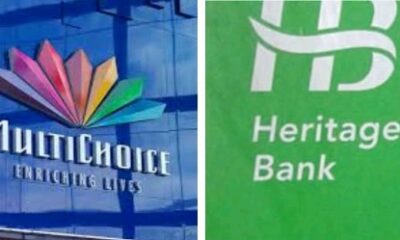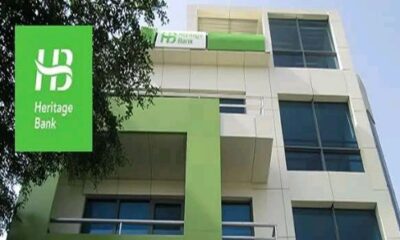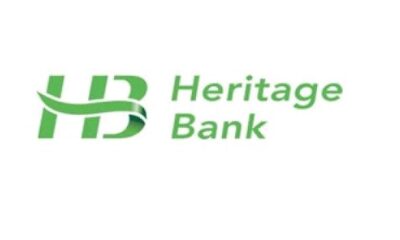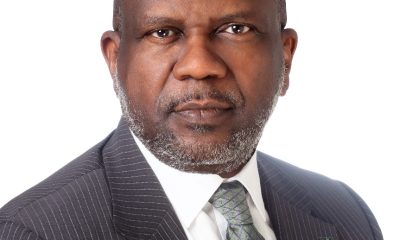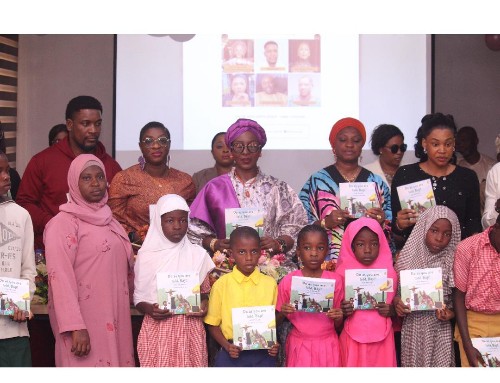Heritage Bank Plc, Nigeria’s Most Innovative Banking Service provider has called on internal auditors of banks to adopt the various digital technologies to prevent fraud and annul the adverse impact of Covid-19 on the financial ecosystem.
Speaking at the just concluded 47th Quarterly Meeting of the Association of Chief Audit Executives of Banks in Nigeria (ACAEBIN), the MD/CEO of Heritage Bank, Ifie Sekibo disclosed that for improved banking operations and a safer financial system for stakeholders, internal auditors must be dynamic and quick to adopt various digital measures.
Raising the alarming impact of fraudulent activities in the banking sector, Sekibo quoted PricewaterhouseCoopers’ (PWC’s) Global Economic Crime and Fraud Survey 2020, revealing that the total cost of cybercrimes is worth an eye-watering $42 billion, which was cash taken straight off companies’ bottom line, whilst 13% of those who had experienced fraud said they had lost $50 million-plus.
Sekibo, who spoke on the theme, “Elevating Internal Audit’s Role in the Face of Emerging Risks and Opportunities” organized virtually and hosted by the Heritage Bank, urged, “While it was sufficient for yesterday’s auditor to understand regular and routine banking practices such as credit, treasury, etc in his traditional assurance role, for him to be relevant in harnessing the opportunities in today’s business world, he must become versed in cybersecurity, artificial intelligence, data analytics, fraud management, regulatory pronouncements, forensics, etc and having equipped himself, present balanced, objective audit reports to Executive Management while striking the right balance between the assurance and consulting responsibilities.”
In her keynote address, titled, “Elevating Internal Audit Role In The Face Of Emerging Risks and Opportunities,” Ibukun Beecroft, Partner Risk Advisory at Deloitte, noted that the banking industry in Nigeria today has adopted various digital measures to keep the business running and delivering services to the customers but there was a need for Internal Audit (IA) positioned to provide the required assurance and consulting services in the face of the changes and attendant risk, particularly increased cyber-risks.
Quoting the 2018 Financial Stability Report by the Central Bank of Nigeria, she stated that Banks recorded 25,029 confirmed cases of fraud and this resulted in a loss of N2.21 billion. More than 90% of fraud cases in 2018 were perpetrated via technologically driven channels.
“As Internal Auditors, the knowledge of the technology would enable us to identify gaps in our core banking applications and other applications and provide relevant recommendations to eliminating loopholes that may serve as an avenue for potential fraud.
She, however, advised auditors on the need to focus on advanced technologies and risk management operations as reflected around the Three Lines of Defense (3LOD) churned out by the Institute of Internal Auditors, which create opportunities for IA and its future role.
Beecroft warned that the ever-changing landscape and evolving risks in the banking industry could render the current internal audit plan obsolete.
According to her, internal auditors should reprioritize the audit plan as soon as possible to provide assurance over the most consequential risks while being cognisant of the impact on operations.
“To take advantage of these changes and disruptions, auditors need to rethink their role by adapting to and embracing change, enabling the IA function to become more agile, nimble, and forward-looking, thus driving change through the 3LOD,” Beecroft stated.
Yetunde Oladeji, Director Internal Audit Services at PricewaterhouseCoopers Limited (PWC), who spoke on the theme, “Elevating IA’s role to meet today’s emerging risks,” advised that the banking sector should be dynamic, prioritize digitization and flexible workforce strategies as these would determine its ability to adapt to rapidly changing circumstances to survive and thrive.

 BIG STORY5 days ago
BIG STORY5 days ago
 BIG STORY3 days ago
BIG STORY3 days ago
 BIG STORY4 days ago
BIG STORY4 days ago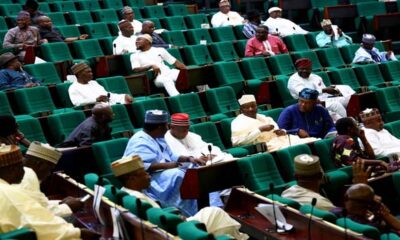
 BIG STORY5 days ago
BIG STORY5 days ago
 BIG STORY3 days ago
BIG STORY3 days ago
 BIG STORY22 hours ago
BIG STORY22 hours ago
 BIG STORY23 hours ago
BIG STORY23 hours ago
 BIG STORY23 hours ago
BIG STORY23 hours ago







